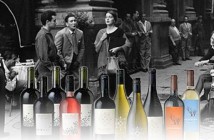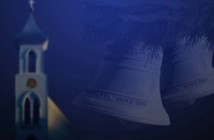For a nation with a land mass slightly smaller than the contiguous 48 U.S. states and a population of just 22.6 million and more steak on the barby than Texas that has about the same population, Australia has mastered the art of getting the world’s attention.
The Wallabies knocking heads with New Zealand’s All Blacks in a rugby showdown watched round the world. The Australian tennis open is the first Grand Slam tournament each year. And where would professional golf be without Greg Norman cooling off with a dram or a Fosters at the 19th hole. The Aussies even sent troops to Iraq and Afghanistan to Uncle Sam’s ill-fated democracy building efforts.
Running in the background of this big Down Under is the emotional tie that binds the Aussie sense of pride and patriotism, the nation’s unofficial national anthem “Waltzing Matilda.” Like “Danny Boy,” nearly everyone pipes up and waxes nostalgic when it’s played.
The song title has nothing to do with a man dancing with a gal named Matilda. It refers to the meanderings of a swagman, a drifter in Aussie slang. What the Irish call a rover. To Americans, a swagman could be a drifter or a carpetbagger, a restless soul moving about a vast land searching for work or an opportunity to stake a claim.
A Matilda is actually a bedroll filled with clothing worn like a backpack over the shoulders. Waltzing is Aussie slang for moving about the country by foot.
The lyrics tell the story of a swagman waltzing through the outback, stopping for rest at a watering hole and heating up some tea in a can called a “Billy,” named after a brand of Aussie tea. He rustles a sheep to kill and eat at the site. Then, a land squatter, claiming to be the sheep’s owner shows up with three lawmen to arrest the swag for stealing “his” sheep. Instead of being framed by the squatter and submitting to legal process the swagman takes his own life, drowning himself a nearby spring. The song claims that the swagman’s ghost forever haunts the site.
The original lyrics were written in 1895 by poet and Aussie nationalist Banjo Paterson, the eldest son of Scottish immigrants. It was first published as sheet music in 1903. The Billy Tea Company used the song in advertising that same year, one reason the heating of the “billy” tea can is part of the lyric even today.
It wasn’t until 1926, however, that the song was first recorded, performed by John Collinson and Russell Callow.
Liam Clancy, Slim Dusty, Joan Baez, The Seekers, Dire Straits and Andre Rieu, among others, have done versions of the song. The version we’ve chosen is sung by John McDrmont. It’s a very moving version of the song and the video shows images of the disasterous WW1 Gallipoli campaign of 1915, in which thousands of young Aussies and New Zealanders were slaughtered by “Johnny Turk” on the beaches of the Dardanelles landing site. War planning by Winston Churchill and other British officials didn’t help much either.
Truth be told, had British Naval Intelligence not failed in their efforts to bribe the Turks over to the allied side, the situation would have been quite different. As the BBC notes, the British came in with a $4 million bribe and were outbid by Kaiser Willie’s Germans, who trumped the deal with a $5 million dollar offer.
Today, Greg Norman plays golf with former president Bill Clinton and “Waltzing Matilda”is played to celebrate the occasion. The Wallabys use the tune to push back the vaunted “Haka”of their New Zealand All Blacks rivals. The Aussie womens rugger squad is also called the Matildas.
But when the dust settles in the Outback, “Waltzing Matilda” is about Aussie-style rugged individualism. And Down Under, everybody drinks to that.



